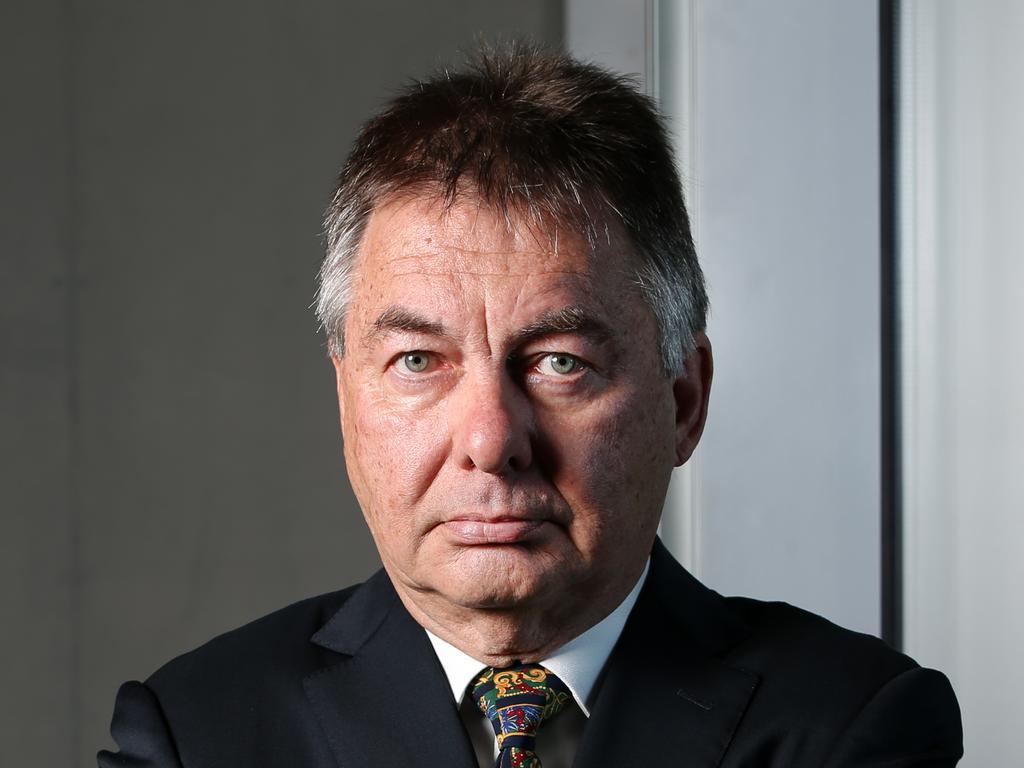Who will bring the ACT watchdog to heel?
The ACT Integrity Commission attempted to slander me, and the journalism of this newspaper, when writing its Operation Juno report. Ultimately it failed. This is the untold story.
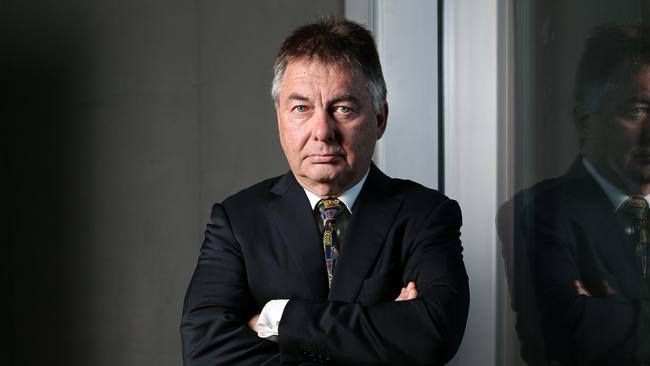
There is a big question about whether the ACT Integrity Commission deserves to have the word integrity in its job description. Its behaviour in two recent matters raises concerns that this powerful body may believe it is above the law. The first matter is public. The second one is not. Until now.
As to the first, last week we learned that the ACT Integrity Commission doesn’t believe that its own work should be the subject of judicial review. The commission has accused Walter Sofronoff of a most serious offence – corrupt conduct – arising from his contact with me before and during the board of inquiry proceedings that investigated, among other things, the conduct of Shane Drumgold.
Following that finding in the Commission’s Operation Juno report, Sofronoff launched an action in the Federal Court for judicial review, claiming the ACT Integrity Commission acted beyond its powers.
Last week, the commission sided with claims by the Speaker of the ACT Legislative Assembly that parliamentary privilege attaches to the Operation Juno report once it was tabled in parliament – keeping it beyond the bounds of a court of law.
This curious development raises several questions. What role did the ACT government play in putting forward these claims? Ring-fencing the Operation Juno report from judicial review is hardly a vote of confidence in the conduct of the ACT Integrity Commission. What is the Speaker, the ACT Integrity Commission and possibly the ACT government afraid of?
That we might learn that this body behaved badly?
The legal arguments about whether the commission’s report can be the subject of the judicial review will play out in court – in public. As they should. Sofronoff is an eminent lawyer and former judge with the intellect and resources to fight this. But ordinary people might not find it so easy to take on the power of the state.
Behind the scenes is a second, untold story about the ACT Integrity Commission. Neither the commission nor the ACT government will relish it being made public. This story too raises considerable questions about the commission’s modus operandi.
The commission attempted to slander me, and the journalism of this newspaper, when writing its Operation Juno report. It ultimately failed. But what it tried was profoundly troubling. It was wrong, legally and morally.
Had the commission behaved this way towards an ordinary citizen, without the legal resources and editorial support I had, it is very likely this body would have succeeded in damaging that person’s reputation. Perhaps a dose of sunlight will trigger more probity at the commission in future.
With that in mind, here is what happened.
In January, the commission sent me, through our lawyers at The Australian, its draft Operation Juno report setting out its findings about me and Sofronoff. It was an extraordinary insight into the workings of the commission.
The draft report was riddled with untrue statements, inconsistencies and unfounded allegations. That was evident from the start.
To comply with section 186 of the ACT Integrity Commission Act, paragraph two of the draft report said if an asterisk was placed next to a person when first named in the report, it signalled the person was not the subject of any adverse comment and opinion.
When my name was first mentioned – in paragraph four – there was an asterisk. And yet the commission proceeded to include a litany of adverse comments and opinions about me throughout the draft report.
When we pointed that out to the commission, it had the audacity to suggest it had made no adverse comment or opinion about me.
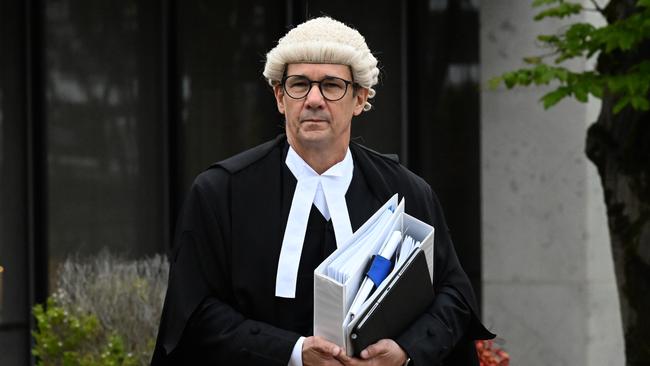
Who was it kidding? The commission’s draft report accused me of having “pre-formed views” about Drumgold, of using information that was “grist to her mill”, of having an “axe to grind”, of being a “protagonist” in this saga. And more. These allegations amounted to serious and unfounded slurs against my work throughout the Lehrmann-Higgins scandal.
The integrity commission did not seek one bit of evidence from me about these matters. So much for procedural fairness from a body charged with investigating the integrity of others. (It asked only who our source was when we published the findings of the board of inquiry report into Drumgold and others. I will come to that later.)
Once we read the draft report, we immediately asked the commission to provide to us evidence to support its allegations against me. The ACT Integrity Commission’s response to us suggested a distinct lack of integrity.
The commission either failed to provide evidence for its allegations about me or it said the allegations were drawn from the judgment of Justice Stephen Kaye in the ACT Supreme Court. Following a legal action brought by Drumgold, Kaye had found that Sofronoff’s conduct, in speaking to me, gave rise to a reasonable apprehension of bias against Drumgold. Importantly, Kaye also found that seven of the eight findings by Sofronoff about Drumgold’s misconduct were not legally unreasonable. The judge went so far as to describe some of Sofronoff’s findings against Drumgold’s misconduct as “unimpeachable” and “entirely unimpeachable”.
Kaye made no adverse comments about me. I was not a party to the legal action brought by Drumgold, nor was I called as a witness. In those circumstances Justice Kaye was careful not to besmirch my reporting and commentary. On the contrary, he described my work as “firm and considered”. Indeed, Justice Kaye described my work as “cogently adverse” to Drumgold. These were entirely fair descriptions by Justice Kaye of the body of work that I produced about this saga, often working with my colleague Stephen Rice.
Justice Kaye said this in his judgment (at paragraph 270): “Ms Albrechtsen’s views, as expressed in the articles published by her, could not be characterised as superficial or unreasoned. Rather, the articles were clearly the product of substantial research undertaken by
Ms Albrechtsen, and were based on a significant amount of information that was apparently available to her … she was well immersed in the background and the circumstances of the prosecution of the case against Mr Lehrmann, and … held considered and firm views relating to that matter, which were significantly critical of” Drumgold.
It was patently untrue for the commission to claim it had gone no further than what Justice Kaye said. It made unfounded, gratuitous, adverse comments about me.
For example, the Macquarie Dictionary defines “axe to grind” as “to have a private purpose or selfish end to attain”. In fact, I had no “axe to grind”, nor did I use information as “grist to my mill” or have “pre-formed views” about Drumgold. Rice and I reported on matters as and when events happened. We sought information from myriad people about myriad issues and events – some involving Drumgold. My commentary responded to events as they unfolded. I formed views about facts as I found them – never before.
Likewise, the commission had no evidence to support its assertion I was a “protagonist” in this never-ending story. That manifestly disparaging claim misunderstands our journalism.
Rice and I interviewed many people involved in this debacle that other media outlets did not. We developed dozens of confidential sources that others did not. We broke dozens of stories. We reported on matters to the public that most other outlets did not. In other words, we were curious and thorough. That did not make me a protagonist.
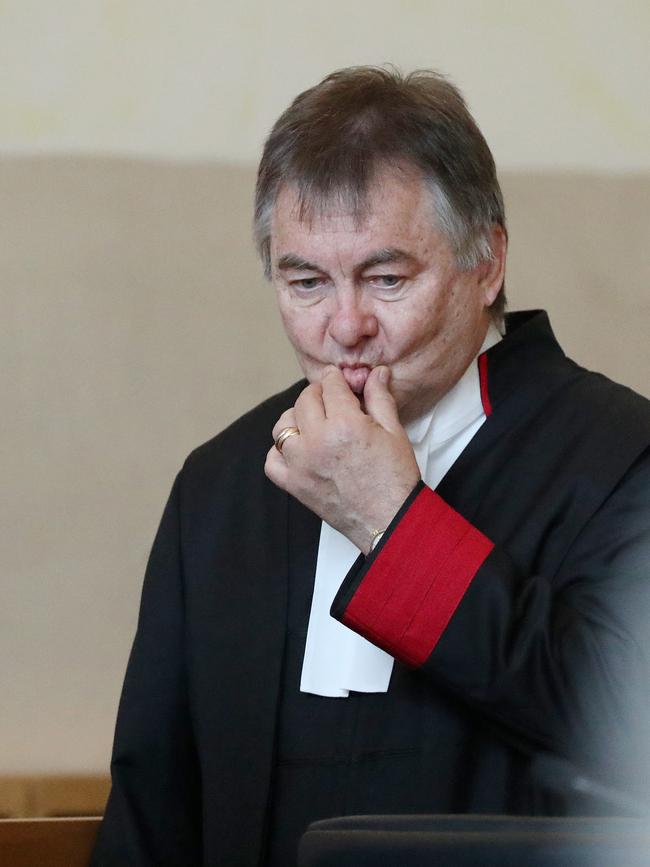
The commission’s claim that these slurs were not adverse comments about me was ludicrous. Test it this way: if one described those preparing the draft Operation Juno report as having “an axe to grind” or receiving material that was “grist to their mill”, or that they had “strong and pre-formed” views going into an inquiry or that they were “already committed to an adverse view” or that any of them was a “protagonist” for simply doing their job, would those assertions – with no evidence to support them – be procedurally fair? No. Would these statements potentially damage the reputation of those at the commission the subject of these allegations? Yes.
We do not shy away from having strong views about the importance of the rule of law. That single foundational legal principle distinguishes us from mob rule. The former director of public prosecutions made a series of admissions during the board of inquiry hearings about his conduct before, during and after the criminal trial of Bruce Lehrmann that raised serious questions about the administration of justice. That’s what we reported and commented on.
The commission’s pattern of disregard for the rights and obligations of a journalist was evident from its first communication to us in September last year when it asked us to disclose – confidentially – the identity of our source, backed by an unveiled threat of “issuing a summons to obtain this information”.
We advised it that no professional and ethical journalist would ever reveal a confidential source. Not even confidentially. Not even to the ACT Integrity Commission. The commission failed – or refused – to understand this most basic of journalistic tenets. It seemed to us that it was determined to build a false case that I was given every chance to defend my integrity about not breaking an embargo – and failed to do so.
We also explained to the commission why it would be impossible for us to “corroborate” that we hadn’t broken the embargo. We told the commission there was no evidence we could give that would not breach our ethical duty in relation to confidential sources.
The commission’s dismissive response to us last year sure was a harbinger of what was to come in its draft Operation Juno report this year. The commission described our response to it as “difficult to accept for obvious reasons”.
What were these “obvious reasons” for rejecting our position? The commission didn’t set that out in the report. It appeared determined to infer – with no evidence – that we had breached the embargo, despite us assuring it that we did not.
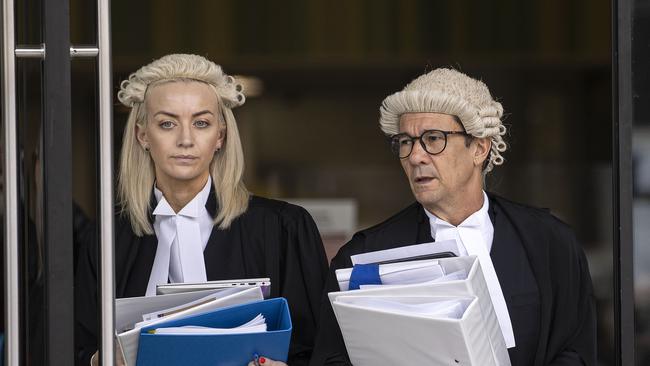
Once again, it fell to us to force the commission to correct the draft report. And we explained the law to the commission: section 126K of the Evidence Act is parliamentary recognition of the critical importance of journalists keeping their confidential sources secret from even the compulsory processes of the court.
This fundamental journalistic tenet is incorporated into the 2018 Integrity Commission Act by reason of section 174(a).
We pointed out that the draft report naively failed to record that the final board of inquiry report had been handed to the ACT government before we received a confidential copy. And that leaks often happen. It could have come from a number of places.
Time and again, our experience was that the ACT Integrity Commission seemed not to comply with its own standards. Its own draft report said “as a tribunal of fact (it) cannot choose between guesses”. It must, its own draft report says, base findings on “a rational assessment of the relevant and available evidence”.
To sum up, the ACT Integrity Commission used patently pejorative words and phrases to make adverse comments about my journalism in its draft report. It did not seek evidence from me – other than to extraordinarily ask who my source was.
The commission did not provide evidence to support its adverse comments about me. It even misrepresented what Justice Kaye said about our journalism. On the one matter where it did ask me questions – requesting we reveal our source – it rejected our response. Its behaviour was so demonstrably inappropriate that it gave rise to, at minimum, the appearance of bias. At its highest, it looked like actual bias and pre-judgment against me.
Ultimately, the ACT Integrity Commission appeared to agree that its draft report lacked integrity. How can I say this? Because after we spent a great deal of time, money and legal effort to expose its shoddy work in our letters to it, the commission agreed to remove all those adverse comments about me and our journalism.
There was nothing magnanimous about the commission’s volte-face. It never should have included baseless allegations in its draft report. Not every person can fight tooth and nail to have baseless allegations removed from a final report.
We could have said nothing about any of this. After all, no one relishes even unfounded allegations being made public. Its debacle could have stayed between the commission and us.
But the commission’s treatment of us raises serious concerns about its final report and its treatment of Sofronoff.
After all, just because the commission removed those adverse opinions about me doesn’t mean it stopped believing them.
I couldn’t care less what the commission thinks about me privately. But painting me as an unethical journalist appeared to be critical for it to conclude that Sofronoff had engaged in corrupt conduct.
At one stage the draft report suggested that conversations between the judge and me may have been “one-sided”. As in I might have been doing all the talking. I will not breach confidentiality by commenting one way or the other on the accuracy of this comment. However, I will observe that this accusation was not put to me by the commission. My conversations with Sofronoff were not taped. The commission had not a skerrick of evidence to support it.
Once again, the commission ignored the role of a journalist – at its core, to listen, to ask questions and to listen again. It failed to understand that Sofronoff wanted the media to report about the board of inquiry in a timely, thorough and curious fashion. That is why he spoke with this newspaper.
Yet here again, the commission was using an unfounded accusation to build a case that an unethical journalist was, quite literally, whispering in private to Sofronoff about her pre-formed views about Drumgold so that the esteemed judge would take her lead. This was slander without foundation.
Our experience with the ACT Integrity Commission is that the behaviour of this body, with its wide-ranging powers, lacks integrity. Its behaviour is far more troubling than anything it has claimed about Sofronoff. It would be a travesty of justice if its final Operation Juno report was not reviewed by a court.



